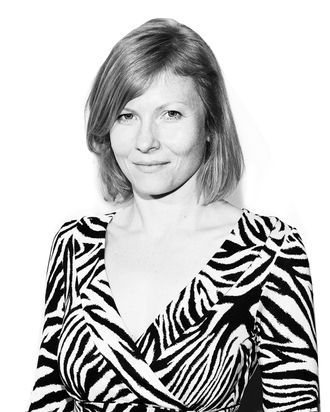
After you interview someone for the Times, do you do any editing of the transcript yourself, or do you leave it all to your editor?
I tend to do a rough pass and then give it to my editor. She’ll go through and do a tighter edit, and then we consult on the final edit.
How have people responded after the fact?
I’m very up-front about where I’m coming from in my interviews. Maybe this is just because I’ve been in therapy too much, but I do a lot of, “Are you saying X, Y, and Z?” Like, I want to understand what you’re saying. I prefer not to trap someone. If someone says something that might later be considered controversial, I prefer it not to be a trap. I prefer it to be an accurate representation of their thinking and not just a misstatement.
You’re not trying to ask in a performative way, like on television.
And goddammit, I wish debates were moderated anonymously somehow. I think about this all the time watching the presidential debates: how the questions are so preening. Like, “I’m really proud of myself for this question.” And it really should be about what the answers are. The question should help you understand what the other person is thinking and how that other person thinks. I’m really interested in how people think. I’m interested in how people arrive at the beliefs that they have.
Can you think of a situation in a recent presidential debate where a question was posed in an ineffective way?
Oh, definitely. That question that got made fun of, that Cruz, I think, rightly mocked: that whole thing about, “Is this a comic-book version of a presidential campaign?” I understood what he was asking, but there was sort of pleasure taken in phrasing it that way. I think Cruz was able to use that question as effectively a tool himself, kind of unfairly. But the question opened itself up to that. Oh, and also when Ben Carson was asked if he has the stomach to order children to be killed. That’s a stupid question. And I will say I think those questions tend to get asked of Republicans more than Democrats — sort of a “gotcha” thing. It’s easier to see the flaws in the conservative worldview, because it’s not ours.
How much do you edit your own questions in the transcripts?
I’m not gonna lie, I probably sound dumber in the transcripts than I do on the page. Because, like any human, I say “um” and “like,” and I circle around a question a thousand times before I finally land on the version that I want … I also feel like we extend that kind of courtesy to the interviewee as well: we don’t make them sound like idiots. I think there’s a lot of pressure to make stuff entertaining, right? It’s not like, “Oh, the egotistical journalist trying to be a show-off with their answer.” That’s the way our business works: You have to be entertaining. And the transcripts of my interviews are a chore to read. If you’re on TV, you have to ask questions that are short, and are interesting to hear, and are kind of show-off-y in whatever way.
So do you watch or listen to broadcast interviews?
I love Terry Gross. I think she is a master. And it’s weird, because I think she actually is good at asking questions that aren’t necessarily performative. The question she put to Hillary Clinton about gay marriage was a great, great question. It was not a gotcha question at all. She was asking, “Did your thinking evolve or did the politics evolve?” Which is the kind of question that I would ask. Which I’m still curious about. I also wish more people would drill Hillary Clinton about her death-penalty answer, which doesn’t make much sense to me: “Not good, except when it’s good. Like, for bad guys, for really bad guys.” The whole point of being against the death penalty is to acknowledge that we can’t always know who is genuinely bad.
And I don’t think she’d answer this question, but the whole email scandal: I’d be more curious about, “So what were you thinking? What was the goal here, when you had a separate server? Was it because you were fearful that other people would read it? Were you concerned about your own privacy? Were you concerned about the ability of your political enemies to have access to this stuff?” I don’t think she’d answer those questions. “Or was it, ‘I don’t want to have to carry two phones’? Was it really just you weren’t thinking beyond, ‘This is a convenient solution’?” Because my suspicion is it was partially a convenient solution and partially paranoia.





























